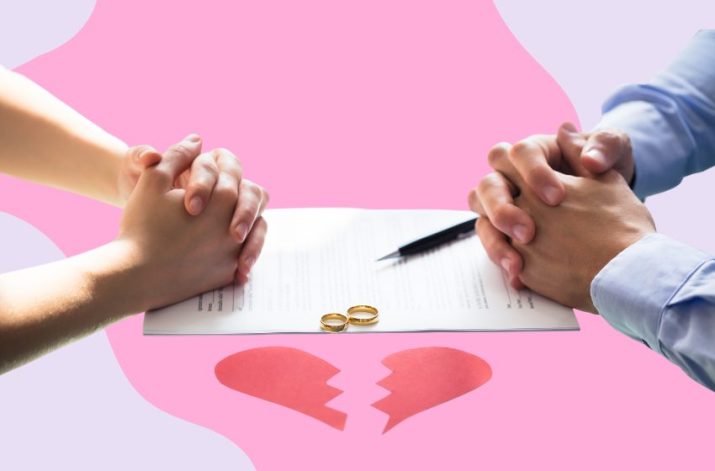When to Walk Away After Infidelity
By Peter Vanderbuild
January 10, 2024 • Fact checked by Dumb Little Man

Picture this: Sarah and Tom, college sweethearts, have been married for 8 years. They'd faced their fair share of challenges, but nothing quite prepared them for the discovery of infidelity. The once trust-filled bond seemed to crack, leaving Sarah wondering if she could ever trust Tom again or if she should even try.
The question of when to walk away after infidelity looms large for many who feel betrayed. But how can one discern whether to repair the relationship or part ways?
As we delve into this sensitive topic, we aim to shed light on the multifaceted nature of infidelity and how to understand its gravity. By the end of this discussion, we hope to provide you with a clearer perspective, enabling you to make the best decision for your relationship and personal well-being.
Understanding the Gravity of Infidelity

Infidelity, often considered merely a physical transgression, is much more intricate. It's the breach of trust, the breakage of a commitment, and the shattering of what was once sacred between two individuals.
At its core, infidelity breaks a commitment to remain faithful to a partner. This breach can manifest in various forms – from emotional connections, such as deep, romantic conversations with someone outside the relationship, to physical actions. Each type holds its weight and can inflict pain and confusion uniquely.
A staggering number of couples experience infidelity in some form. According to research, about 20-25% of married men and 10-15% of married women admit to having engaged in extramarital affairs during their lifetime.
Divorce statistics show that while many marriages survive infidelity, only about half can restore the previous intimacy and trust. It's essential to assess if both partners believe the relationship can withstand the aftermath and if they're willing to put in the effort to make the relationship work again.
Discovering infidelity can feel like a gut punch, leading to many emotions – from anger to sorrow, shock to disbelief. This roller coaster of feelings isn't merely fleeting emotions. They have long-term psychological effects like anxiety, depression, post-traumatic stress disorder, and a severe blow to one's self-esteem.
Factors to Consider Before Making a Decision

Discovering infidelity in a relationship can be overwhelmingly chaotic, especially when you think it is a healthy relationship. Before making a life-altering decision in the heat of emotion, taking a step back and considering various factors is crucial. These aspects will help you understand the situation better and guide you toward a decision that aligns with your well-being and long-term happiness.
Personal Values
Every individual enters a relationship with a set of ingrained beliefs and values. Marriage is an unbreakable bond for some, and overcoming challenges, including infidelity, is paramount. For others, trust, once broken, is irreparable. Where do you stand?
Many cultures and religions provide guidance on handling infidelity. While respecting these guidelines is essential, ensure that your decision aligns with your personal beliefs and not just societal or familial expectations.
Emotional Well-being
Your mental and emotional health should always be a top priority. Infidelity can be a traumatic experience. It's vital to check in with yourself. How are you genuinely feeling? Are you experiencing symptoms of depression, anxiety, or extreme stress?
Some people can forgive and move on, while others find the betrayal too hard to forget. Can you envision a future where the incident doesn't overshadow your relationship?
It's crucial to introspect and understand your own feelings. Infidelity pain can manifest in numerous ways, from hurt feelings to shattered self-esteem. Before deciding if the relationship will survive infidelity, consider how deeply the cheating has affected your emotional well-being.
The Nature of the Infidelity
Infidelity isn't limited to just a physical affair. An emotional affair, where there is a deep emotional connection without physical intimacy, can be just as damaging. Understanding the nature of your partner's cheating or partner's infidelity can be essential to address the core relationship issues.
Understanding the context can shed light on the next steps. Was the act an isolated incident, or has there been a pattern of betrayal? While neither is excusable, understanding nature can guide your decision.
Understanding whether the infidelity was driven by a search for emotional connection or merely physical can offer insight into underlying relationship issues.
The Partner's Response
Genuine remorse goes beyond mere apologies of the cheating partner. Does your cheating spouse or unfaithful partner express remorse sincerely? Do their behavior and actions demonstrate a commitment to make amends? Not everyone shows genuine remorse; discerning this is vital for healing.
A willingness to seek professional help, individual therapy, or couples counseling shows a commitment to healing and growth.
A partner who takes responsibility for their actions is more likely to work towards rebuilding trust than someone who shifts the blame.
Support System
You don't have to navigate this journey alone. Sharing your feelings and challenges with close friends or family can provide emotional relief and perspectives you might not have considered.
Many couples find solace in marriage counseling or couples therapy. Therapists or counselors can offer unbiased, professional advice and coping strategies, whether you stay or leave.
However, suppose your partner refuses to seek help from marriage counselors or even try online couples therapy. In that case, it may be a red flag. This might imply a lack of commitment to work through the infidelity pain and rebuild trust.
Making a decision after infidelity isn't about rushed conclusions; it's about informed choices. Considering the factors mentioned above, you can approach your decision with clarity, empathy, and respect for yourself and your partner.
Walking the Path of Healing and Reconciliation

Choosing to stay and heal after infidelity is a brave decision, demanding patience, resilience, and a tremendous amount of love. While the road to healing may be rocky, with genuine effort and dedication, many couples find their bond even stronger on the other side. Here's how to navigate this challenging yet transformative journey.
Couples Counseling
Often, emotions run high after an act of betrayal, making open communication difficult. A couples therapist acts as a neutral mediator, guiding conversations, and providing tools and techniques to rebuild trust.
If both partners are committed to reconciliation, seeking therapy sooner rather than later can be beneficial. Expect raw, honest discussions, self-reflection, and exercises to rebuild intimacy.
Rebuilding Trust
Trust, once broken, needs time and consistent effort to mend. Begin by creating a safe space where both partners can voice their fears, regrets, and hopes without judgment. Often, it's the unsaid feelings that fester and prevent healing.
A betrayed partner often grapples with complex emotions, from a dent in self-esteem to negative emotions like anger or resentment. For a relationship to survive infidelity, both partners must actively participate in rebuilding trust. Couples counseling and support from a licensed therapist or family therapist can be beneficial in this journey.
Boundaries aren't restrictions but clarifications of what each partner needs to feel safe and loved. It could be regular check-ins or access to each other's devices, but ensure the boundaries come from a place of mutual respect and not control.
Trust isn't rebuilt overnight. It's essential for both partners to understand that healing will be a process, sometimes with setbacks. Celebrate the small victories along the way.
>> Also Read: How to Fix a Relationship After Cheating
Personal Therapy
While couples therapy addresses the relationship as a unit, personal therapy is about individual healing. Infidelity can resurface past traumas or insecurities. A personal therapist can help address and heal these wounds, ensuring they don't hinder reconciliation.
Personal therapy offers a space for introspection. It can help individuals discern if they genuinely wish to stay and heal or are driven by fear of loneliness or societal pressure.
Recognizing When It's Time to Walk Away

Sometimes, despite all the effort, love, and time, the shadows of infidelity loom too large for a relationship to find its way back to light. Recognizing when to step away is as vital as attempting reconciliation. It's a decision that stems from self-respect, the longing for inner peace, and acknowledging the relationship's realities.
Here are some signs that suggest it might be time to move on:
Persistent Broken Trust
If, after extended efforts, trust remains elusive and every minor incident triggers suspicions, it might be a sign that the wound runs too deep to heal.
Lack of Genuine Remorse
Suppose the infidelity isn't a one-off incident, and your partner continues to breach trust. In that case, it might indicate a lack of genuine commitment to the relationship's well-being.
Moreover, it's one thing to apologize and another to understand and feel remorse for the pain caused. If your partner tends to minimize their actions or refuses to acknowledge the full extent of the hurt they've caused, it could be a sign of deeper issues.
Emotional Well-being is at Stake
Suppose the aftermath of the betrayal leaves you in a perpetual state of anxiety, sadness, or anger. In that case, it's essential to consider your emotional well-being. A relationship shouldn't be a consistent source of pain.
Growing Apart Instead of Together
Sometimes, infidelity can be a symptom of a more significant problem. If, upon reflection, you realize that you and your partner have been growing apart or have fundamental differences that go beyond the infidelity, it may be a sign.
Seeking External Advice
Speaking to trusted individuals, whether they're friends, family, or therapists, can offer fresh perspectives. They can shed light on aspects of the relationship you might be too emotionally involved to see.
If, after several counseling sessions, there's no discernible progress or if the therapist suggests incompatibility, it might be worth considering their professional opinion.
Conclusion
Infidelity, with its intricate emotions and complexities, poses one of the most challenging dilemmas in a relationship. Whether you decide to walk the path of healing and reconciliation or recognize it's time to walk away, both choices demand courage, introspection, and profound respect for oneself and the relationship.
Only you can honestly decide the best path forward for your relationship. What works for one might not work for another. Seeking support groups, friends, family, or a relationship expert can provide an impartial perspective. Still, the final decision rests in your hands.
Embrace the journey, trust your instincts, and prioritize your well-being. Whatever path you choose, a future full of hope, growth, and happiness is waiting for you.
FAQs: When to Walk Away After Infidelity
How common is infidelity in relationships?
Infidelity is a complex issue, and its prevalence varies across cultures and communities. Research indicates that a significant number of married individuals have engaged in extramarital affairs at some point. Still, the exact percentage can fluctuate based on definitions and methodologies used in studies.
Can relationships truly heal after infidelity?
Yes, many relationships can and do heal after infidelity. However, the healing process requires genuine remorse, effort from both partners, transparency, and, often, professional guidance. The road to recovery is challenging, but it results in a deeper and more meaningful connection for many.
When is the right time to start dating again after separation due to infidelity?
There's no fixed timeline for when one should start dating post-separation. It's essential to heal, understand personal lessons from the past relationship, and feel emotionally ready before venturing into the dating world. Some might be ready in a few months, while others might take years. Always prioritize your emotional well-being.
Peter Vanderbuild
Trevor Fields is a tech-savvy content strategist and freelance reviewer with a passion for everything digital—from smart gadgets to productivity hacks. He has a background in UX design and digital marketing, which makes him especially tuned in to what users really care about. Trevor writes in a conversational, friendly style that makes even the most complicated tech feel manageable. He believes technology should enhance our lives, not complicate them, and he’s always on the hunt for tools that simplify work and amplify creativity. Trevor contributes to various online tech platforms and co-hosts a casual podcast for solopreneurs navigating digital life. Off-duty, you’ll find him cycling, tinkering with app builds, or traveling with a minimalist backpack. His favorite writing challenge? Making complicated stuff stupid simple.






